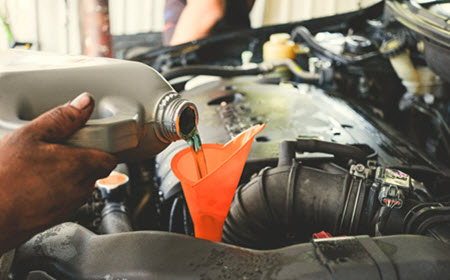The torque converter is an essential component of a BMW’s automatic transmission system. It acts as a fluid coupling between the engine and transmission, allowing the engine to idle while the vehicle is stopped in gear without stalling. However, like all mechanical parts, the torque converter can fail and cause problems for the vehicle.
Here are some common causes of BMW torque converter failure:
- Contaminated transmission fluid: The transmission fluid is responsible for lubricating and cooling the torque converter, as well as other parts of the transmission. If the fluid becomes contaminated with dirt or debris, it can cause the torque converter to fail. It is important to regularly check and replace the transmission fluid to prevent this type of failure.
- Overheating: The torque converter relies on the transmission fluid to cool it down, so if the fluid becomes too hot, it can cause the torque converter to fail. This can be caused by a number of factors, such as driving the vehicle hard for extended periods of time, towing heavy loads, or getting stuck in traffic.
- Wear and tear: Like any other mechanical component, the torque converter is subject to wear and tear over time. As it ages, the internal components of the converter may become worn, causing it to fail. This is particularly common in high mileage vehicles.
- Faulty transmission: If the transmission is not functioning properly, it can put additional strain on the torque converter and cause it to fail. A faulty transmission may be caused by a variety of issues, including worn gears, a faulty transmission control module, or a leak in the transmission.
- Faulty torque converter clutch: The torque converter has a clutch that is responsible for engaging and disengaging the converter. If this clutch fails, it can cause the torque converter to fail as well.
- Poor quality replacement parts: If the torque converter is replaced with a low-quality or incompatible part, it can lead to failure. It is important to use high-quality, OEM (original equipment manufacturer) parts whenever possible to ensure proper functioning.
Symptoms To Look Out For When The Torque Converter Fails
If the torque converter fails, it can cause a number of problems for the vehicle. These symptoms could include:
- Slipping or delayed engagement: If the torque converter fails, it may not be able to properly transfer power from the engine to the transmission, causing the transmission to slip or not engage properly.
- Overheating: A failed torque converter can cause the transmission fluid to overheat, leading to damage to the transmission and other components.
- Loss of power: A failing torque converter can cause a loss of power to the transmission, which can make it difficult to drive the vehicle.
- Noise: A failing torque converter may produce strange noises, such as humming or whining, as it struggles to transfer power.
- Check engine light: A failing torque converter may trigger the check engine light to come on, indicating that there is a problem with the vehicle’s transmission
Preventing Torque Converter Failure
To prevent torque converter failure, it is important to regularly maintain the transmission and transmission fluid. This includes checking and replacing the fluid at the recommended intervals and having the transmission serviced if any problems are detected. In addition, driving the vehicle in a responsible manner, such as avoiding hard acceleration and braking, can help to extend the life of the torque converter.
Fixing The Torque Converter
If you suspect that your BMW’s torque converter may be failing, it is important to have it checked out by a qualified mechanic as soon as possible. The sooner the issue is addressed, the less likely it is to cause serious damage to the transmission.
In summary, the common causes of BMW torque converter failure include contaminated transmission fluid, overheating, wear and tear, faulty transmission, faulty torque converter clutch, and poor quality replacement parts. Proper maintenance and responsible driving habits can help to prevent these issues and extend the life of the torque converter.
Momentum Motorworks Can Repair Your BMW’s Torque Converter Today
Momentum Motorworks of Birmingham offers  reliable auto services, including diagnostics and repair of BMW torque converters. Common issues leading to BMW torque converter failure include a worn out or failing solenoid, dirty fluid, broken internal components, and insufficient fluid levels.
reliable auto services, including diagnostics and repair of BMW torque converters. Common issues leading to BMW torque converter failure include a worn out or failing solenoid, dirty fluid, broken internal components, and insufficient fluid levels.
Our technicians are specialized in fixing such issues and are proud to service drivers from neighborhoods like Alabaster, Homewood, Helena, Hoover, Mountain Brook, Vestavia, and Birmingham, AL. We have attracted loyal customers due to the accuracy of our work, which gives drivers peace of mind that the job was done right the first time.

